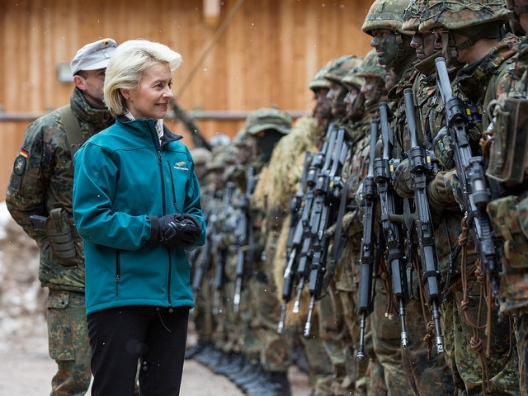 Germany is to raise troop numbers for the first time since the cold war in response to growing international challenges, including Islamist terrorism, instability in Africa, cyber attack threats and Russia’s newfound assertiveness.
Germany is to raise troop numbers for the first time since the cold war in response to growing international challenges, including Islamist terrorism, instability in Africa, cyber attack threats and Russia’s newfound assertiveness.
The reversal of 25 years of personnel cuts also confirms the growing willingness of Germany to play a bigger role in global security — and react to demands from the US for Nato’s European partners to spend more money on the alliance’s collective defence.
“The armed forces have in the past few months been put under pressure as rarely before,” said Ursula von der Leyen, defence minster, on Tuesday. “We have to get away from the process of cutting back, of becoming smaller in the military, … and move towards a modern military.”
After falling from 585,000 in 1990 to 177,000 today, the armed services are to rise by 7,000 new posts by 2023. About 5,000 new frontline posts will also be created through internal restructuring.
The government will ask Germany’s parliament to ease the current legal upper limit of 185,000 troops so that the military can respond more quickly to fast-changing security challenges.
The civilian payroll of 56,000 will also be raised by 4,400 to increase the support for the uniformed ranks as they face more complex tasks in an increasing range of foreign locations, which today include Syria, Iraq, Afghanistan and Mali.
Image: German Defense Minister Ursula von der Leyen, March 23, 2016 (photo: Marco Dorow/Bundeswehr)
